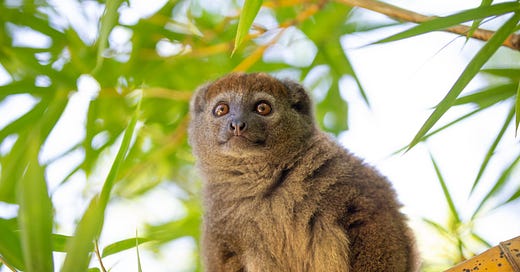Lemurs & Monkeys Are Descending From Trees As The Environment Warms
Tree-dwelling primates are being forced to spend more time on the ground in search of water and shade as a result of climate change and deforestation.
A study1 based on some more than 150,000 hours of observations of 47 species of tree-dwelling primates spread across nearly 70 sites in Madagascar and the Americas led to the release of the warning that monkey and lemur species that live in trees are spending more time on the forest floor as a result of the temperature increase. Specifically, in location…
Keep reading with a 7-day free trial
Subscribe to Primatology.net to keep reading this post and get 7 days of free access to the full post archives.



